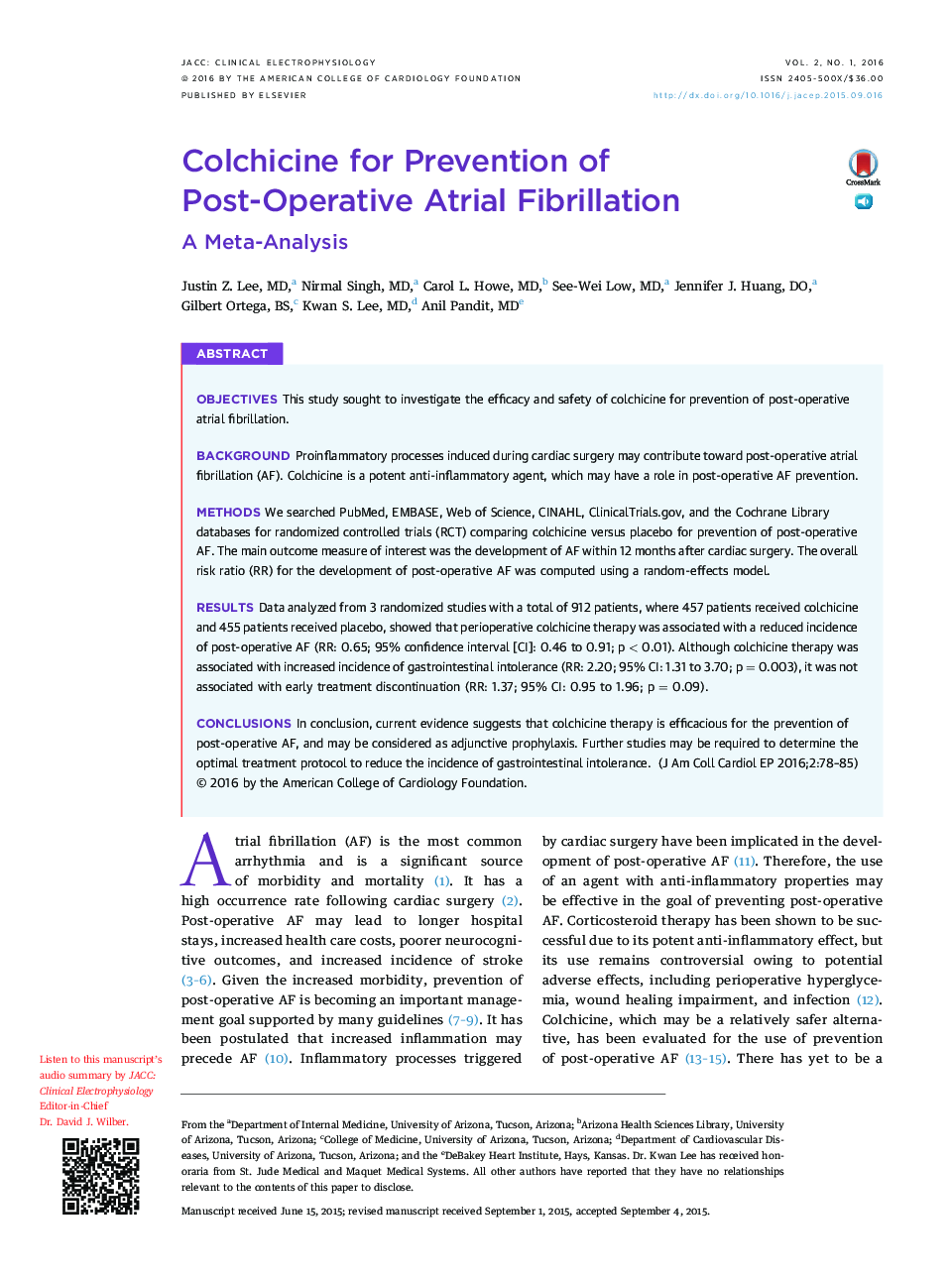| Article ID | Journal | Published Year | Pages | File Type |
|---|---|---|---|---|
| 2942248 | JACC: Clinical Electrophysiology | 2016 | 8 Pages |
ObjectivesThis study sought to investigate the efficacy and safety of colchicine for prevention of post-operative atrial fibrillation.BackgroundProinflammatory processes induced during cardiac surgery may contribute toward post-operative atrial fibrillation (AF). Colchicine is a potent anti-inflammatory agent, which may have a role in post-operative AF prevention.MethodsWe searched PubMed, EMBASE, Web of Science, CINAHL, ClinicalTrials.gov, and the Cochrane Library databases for randomized controlled trials (RCT) comparing colchicine versus placebo for prevention of post-operative AF. The main outcome measure of interest was the development of AF within 12 months after cardiac surgery. The overall risk ratio (RR) for the development of post-operative AF was computed using a random-effects model.ResultsData analyzed from 3 randomized studies with a total of 912 patients, where 457 patients received colchicine and 455 patients received placebo, showed that perioperative colchicine therapy was associated with a reduced incidence of post-operative AF (RR: 0.65; 95% confidence interval [CI]: 0.46 to 0.91; p < 0.01). Although colchicine therapy was associated with increased incidence of gastrointestinal intolerance (RR: 2.20; 95% CI: 1.31 to 3.70; p = 0.003), it was not associated with early treatment discontinuation (RR: 1.37; 95% CI: 0.95 to 1.96; p = 0.09).ConclusionsIn conclusion, current evidence suggests that colchicine therapy is efficacious for the prevention of post-operative AF, and may be considered as adjunctive prophylaxis. Further studies may be required to determine the optimal treatment protocol to reduce the incidence of gastrointestinal intolerance.
